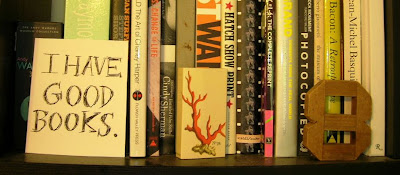 This is a collection of short news items that appeared anonymously in the French newspaper Le Matin in the year 1906, mostly about criminal activity and other strange occurrences. The anonymous writer proved to be Felix Feneon, a Parisian anarchist and art critic who, though he could have risen to greatness (he was the first French publisher of James Joyce and early promoter of Georges Seurat and the "Neo-impressionists," a term which he coined), preferred to preserve his anonymity, toiling away as an obscure clerk in the French War Department.
This is a collection of short news items that appeared anonymously in the French newspaper Le Matin in the year 1906, mostly about criminal activity and other strange occurrences. The anonymous writer proved to be Felix Feneon, a Parisian anarchist and art critic who, though he could have risen to greatness (he was the first French publisher of James Joyce and early promoter of Georges Seurat and the "Neo-impressionists," a term which he coined), preferred to preserve his anonymity, toiling away as an obscure clerk in the French War Department.The book's introduction is written by Luc Sante, which, admittedly, is what first drew me to this book when I saw it on display in a store. Sante writes, "Feneon's three-line news items...are the poems and novel he never otherwise wrote...They demonstrate in miniature his epigrammatic flair, his exquisite timing, his pinpoint precision of language, his exceedingly dry humor." A few examples:
"Nurse Elise Bachmann, whose day off was yesterday, put on a public display of insanity."
A few articles down, the following appears: "A certain madwoman arrested downtown falsely claimed to be nurse Elise Bachmann. The latter is perfectly sane."
The bluntness employed here is almost comical: "'If my candidate loses, I will kill myself,' M. Belavoinne, of Fresquienne, Seine-Inferieure, had declared. He killed himself."
I love all the details that Feneon bothers to mention in the short amount of available space: "Weighed down with bronzes, with china, with linens, and with tapestries, two burglars were arrested, at night, in Bry-sur-Marne."
"With a four-tined pitchfork, farmhand David, of Courtemaux, Loiret, killed his wife, whom he, erroneously, thought unfaithful." So much is communicated in just one word, "erroneously"--it really changes the meaning of the statement.
Some of them really feel like poetry: "The schoolchildren of Niort were being crowned. The chandelier fell, and the laurels among them were spotted with a little blood." Who else would have described it in such a way?
There are so many more great ones. It is, however, not the type of book that you should read from cover to cover, in long sittings. After awhile they start to blur together, and the subtlety and artfulness begins to be lost as you quickly skim through them. Better to savor and ingest it a little at a time.

No comments:
Post a Comment